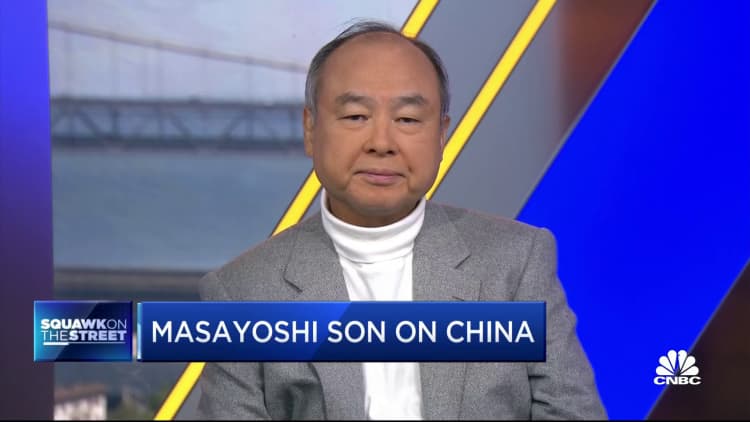
[ad_1]
Chinese ride-hailing giant Didi delisted from the New York Stock Exchange just months after its June 2021 IPO after a now-resolved regulatory probe that had forced Didi to suspend new user registrations.
Brendan McDermid | Reuters
BEIJING — Slowing growth and geopolitical tensions are stifling the Chinese startup world that once spawned unicorns such as ByteDance and Didi, according to a PitchBook report Monday.
China’s economic rebound from the pandemic has slowed. U.S.-China tensions have spilled over to finance, dampening already subdued market sentiment. Chinese regulation in the last two years has also made it harder for companies to go public overseas.
Venture capital firms in China invested $26.7 billion in 3,072 deals in the first half of 2023, PitchBook said.
On an annualized basis, that indicates a 31.4% drop from 2022 levels — on pace to fall below that of 2016, the report said.
Most investments were also small.
The annualized value of mega-deals — $100 million or larger — were on pace for their lowest level since 2015, PitchBook said.

While China’s economy showed signs of picking up in the last several weeks, the slowdown in early-stage investing is a steep one to recover from.
Second-quarter deals marked the fourth-consecutive quarter of declines in deal value, according to PitchBook.
A drop in foreign participation was a factor.
The niche but once-burgeoning world of early-stage investors in China had seen firms raise billions of dollars from overseas institutions to invest in domestic startups, which would then hold an initial public offering in the U.S.
Anecdotally, we’ve heard that some US investors have pulled back from allocating to China mainly due to geopolitical concerns and several other factors…
A record low of 10% of deals included an investor based outside of Greater China, down from about 16% in 2018, PitchBook said. On the fundraising front, the report said only three funds denominated in U.S. dollars closed in the first half of the year.
“Anecdotally, we’ve heard that some US investors have pulled back from allocating to China mainly due to geopolitical concerns and several other factors, including a Chinese economic slowdown and crackdowns on the tech sector,” the report said.
Growth of yuan-denominated funds and mid-sized funds helped boost overall Greater China fundraising activity to $28 billion — on pace to exceed 2022 levels, but still a sharp slowdown from $131.4 billion raised in 2018, PitchBook said.
Difficulties at the end of the venture capital investing process persisted as market sentiment for IPOs in Hong Kong and the U.S. remained subdued.
The number of exits in the first half of the year fell to 130 from 177 in the second half of 2022, while exit value fell to $77.5 billion from $100.2 billion, PitchBook said.
[ad_2]
Source link
